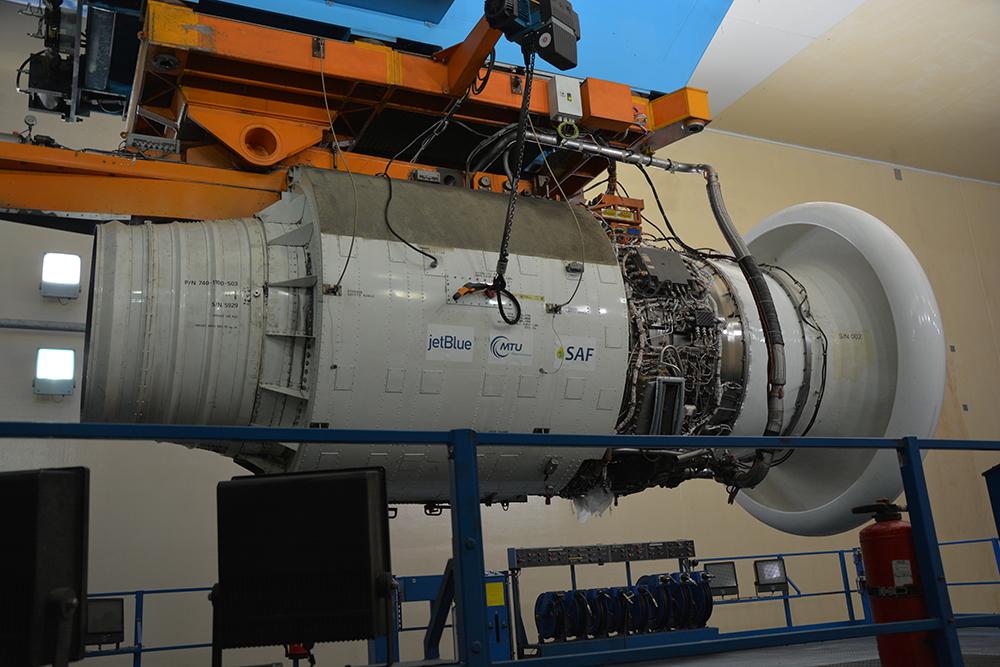
MTU Maintenance and JetBlue Airways are partnering to test and gather data on the use of sustainable aviation fuels (SAF) for engines powering the airline’s fleet.
Under the partnership, MTU will perform test runs with SAF on the airline’s V2500 engines at its Hannover facilities following on from shop visits. It will initially perform tests runs with a 10% SAF blend, which MTU says can be expanded up to the current regulatory limit of 50% if required.
According to MTU’s chief program officer, Michael Schreyogg, it is the first MRO provider in the world to offer test runs with SAF. MTU began SAF testing with V2500 engines in November 2021 and is considering expanding tests to other engine types, such as the CFM56-7B and GE90. A representative for MTU says it will be offering SAF test runs as a service to other customers and it hopes to increase the number of test runs moving forward.
“SAF is a key initiative in reducing the climate impact of the aviation industry and increased and reliable supply will be incremental to this,” says Schreyogg. “At MTU, we are implementing SAF early and promoting its usage to and for our customers.”
JetBlue currently holds an exclusive 13-year contract with MTU Maintenance for its V2500 pre-select fleet. The SAF testing will be part of its goal of achieving net zero carbon emissions by 2040. The airline is also implementing sustainability initiatives along its supply chain.
MTU is also heavily involved in sustainability initiatives across its operations. “We are excited to be doing our part in reducing carbon dioxide emissions at our sites and providing more sustainable MRO solutions for customers across the lifecycle,” says Schreyogg. “MTU is committed to the Paris Climate Agreement and therefore aiming to become carbon neutral in operations across our German production facilities.”
These efforts have included energy efficiency and emissions reductions at MTU’s largest maintenance facility in Hannover. It invested in insulation, heat exchangers, LED lighting and other features to make the facility greener. According to a spokesperson for MTU, it is planning larger projects, including changing its heating systems to accommodate renewable energy sources.
In a further nod to Europe’s climate initiatives, MTU’s chief operating officer, Lars Wagner, was recently given a seat on the governing board of Europe’s Clean Aviation program, which is aiming to make aviation climate-neutral by 2050.
When MTU Aero Engines announced in April 2021 that it planned to make its Munich location climate neutral by the end of the year, Wagner said the company has been an “early pioneer of sustainable aviation,” noting that it is focusing its attention on hydrogen concepts and flying fuel cells. MTU is currently working with the German Aerospace Center to develop a zero-emissions hydrogen fuel-cell power train for flight testing in Dornier Do 228 regional aircraft.





